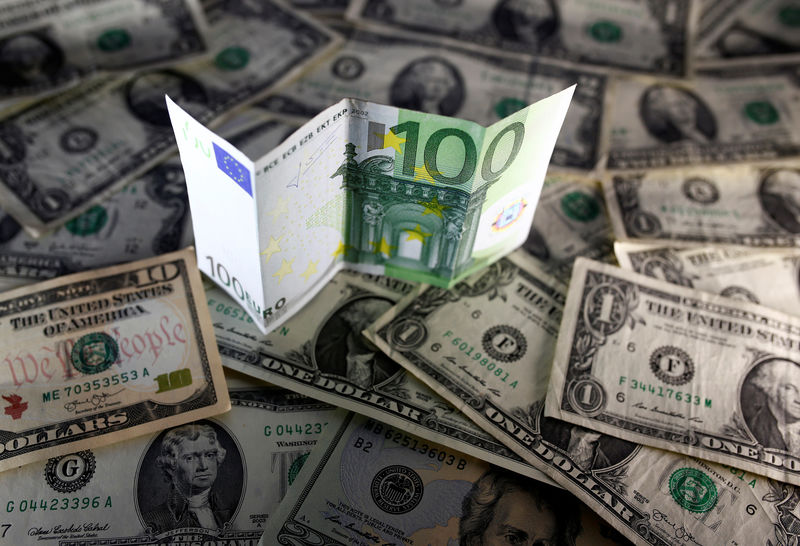By Tom Finn
LONDON (Reuters) - The euro edged down on Tuesday as the euro zone economy showed more signs of slowing, while the dollar gained despite growing bets the U.S. central bank will pause its rate hike cycle.
A unexpected fall in German industrial output for the third straight month helped to weaken the euro. The drop was modest, but it underscored concerns about a slowdown and the European Central Bank’s caution as it tries to wean the region off stimulus.
German exporters are struggling with weaker global demand and trade disputes driven by U.S. President Donald Trump's policies.
"It's yet more weak data that could end up hindering the ECB's monetary tightening plans," said Thu Lan Nguyen, an FX strategist at Commerzbank (DE:CBKG) in Frankfurt.
The ECB has said it plans to leave rates unchanged through the summer of 2019. Nguyen said she doesn’t expect it to tighten policy until 2020.
The euro fell 0.2 percent to $1.1463. It has traded in a tight range of $1.12 to $1.15 since mid-November.
Weakness in the euro supported the dollar, which rose 0.1 percent against a basket of currencies to 95.734 (DXY). The dollar index has lost around 2 percent since mid-December and remains near a three-month low of 95.638 reached on Monday.
Federal Reserve Chairman Jerome Powell said on Friday the Fed is not on a preset path of rate hikes and will be sensitive to the downside risks markets are pricing in.
The prospect of no further rate increases are likely to keep the dollar under pressure.
"Growing expectations that the Fed will pause on its rate hike cycle is weighing on the dollar and that will be a big factor in the coming days," said Lee Hardman, an FX strategist at MUFG in London.
The British pound
British Prime Minister Theresa May must win a vote in parliament next week to approve her Brexit agreement or risk seeing Britain's exit from the European Union descend into chaos.
Elsewhere, the Australian dollar
Sentiment has been buoyed by aggressive stimulus measures in China, the largest importer of Australian commodities, and by improved prospects for a U.S.-China trade deal.
U.S. Commerce Secretary Wilbur Ross said on Monday there was a good chance Beijing and Washington would reach a trade deal that "we could live with".
